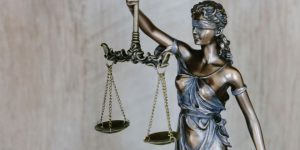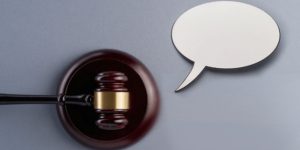Judiciary
Writing from the Meese Center for Legal and Judicial Studies at the Heritage Foundation, GianCarlo Canaparo offers a short explainer of why standing matters in legal proceedings and how the judiciary is currently making a mess of it. Both of those points are valuable to read, because the reason to limit cases based on standing…
Ethan Yang, in a post for the American Institute for Economic Research, asks, “Why Have the Courts Been Deferential to Lockdowns?” Yang addresses legal principles and tests, such as “rational basis” and “the narrowly tailored standard” and writes: Hollow phrases such as “the common good,” “the public interest,” and “reasonable” give enormous discretion to judges…
While disagreeing with the outcome, Charles Krauthammer has some ideas as to why Chief Justice Roberts may have ruled as he did in the Health Care case: Why did he do it? Because he carries two identities. Jurisprudentially, he is a constitutional conservative. Institutionally, he is chief justice and sees himself as uniquely entrusted with…
During Tuesday’s oral arguments over Obamacare, Supreme Court Justices Clarence Thomas and Stephen Breyer apparently teamed up to pay tribute to the old adage, attributed to Abraham Lincoln and Mark Twain amongst others, that it is “better to remain silent and be thought a fool than to speak out and remove all doubt”. Justice Thomas…
The precedent that this ruling out of Michigan, related to a constitutionally created ban on affirmative action, sets is astonishing: The 2-1 decision upends a sweeping law that forced the University of Michigan and other public schools to change admission policies. The 6th U.S. Circuit Court of Appeals said the law, approved by voters in…
Looking out the window prior to work, today, brings to mind this article about truants that I’ve been meaning to note for a few weeks, now: For years, magistrates for Rhode Island Family Court’s truancy program have imprisoned students who misbehave during hearings on their attendance, despite a state law created to keep the government…
Edwin Meese is not impressed with U.S. District Judge Vaughn Walker’s decision that the Constitution requires recognition of same-sex marriage: By refusing to acknowledge binding Supreme Court precedent, substantial evidence produced at trial that was contrary to the holding and plain common sense, the ruling exhibits none of the requirements of a traditional decision. This…
Yes, there are distinctions, and obviously, it is possible to argue both points simultaneously, but consider the circumstances that some early federal judicial rulings on same-sex marriage have created. A judge in Massachusetts has declared that the U.S. Congress and President cannot define marriage for the purposes of federal law, because the Constitution leaves the…
October 14, 2005. The White House [needs to] recognize that, in the absence of any judicial record on her part, in the absence of any significant work that she appears to have done related to Constitutional issues, that she is going to need to be more forthcoming and the White House is going to need…
By way of follow-up on an issue that I’ve mentioned, before, the Supreme Court has ruled that a plain cross on public land in the middle of the desert does not constitute an establishment of religion: By a 5-4 vote, the justices reversed lower courts in California that ordered the U.S. Park Service to remove…


